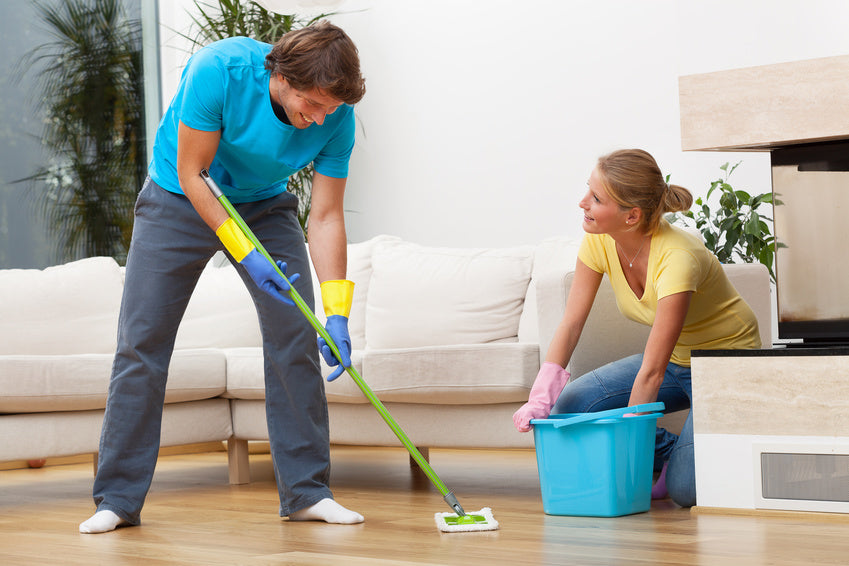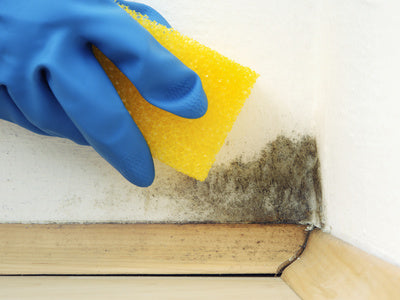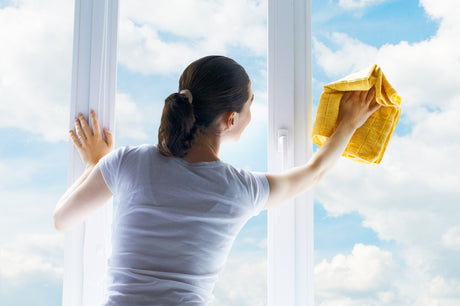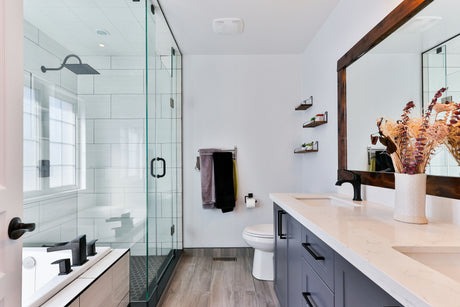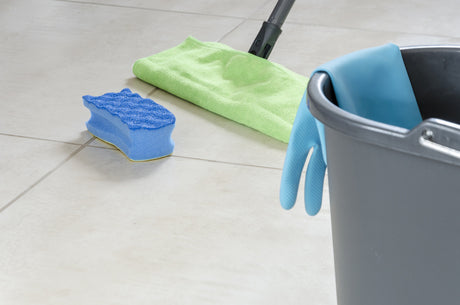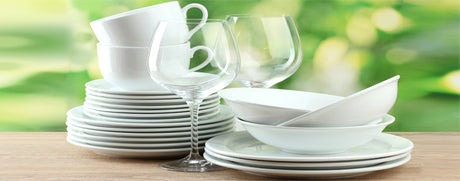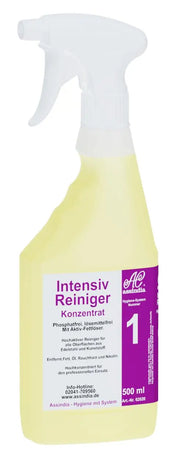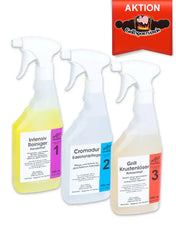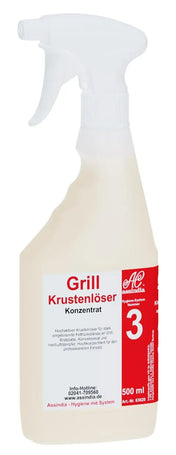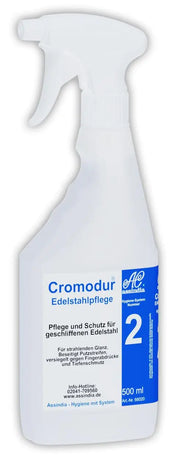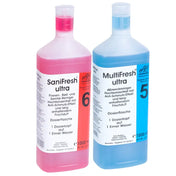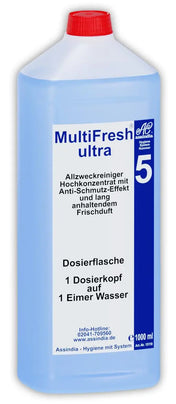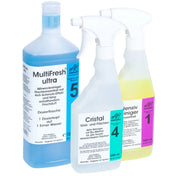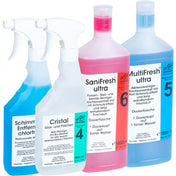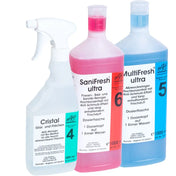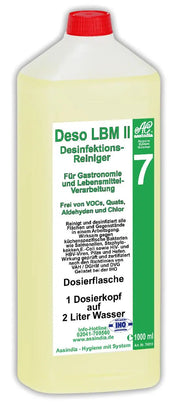Mopping the floor is one of the basic tasks of household cleaning and is crucial for a clean and healthy living environment. However, not all floors are the same, and therefore not all floors should be treated with the same cleaning products. In this blog post, we take a detailed look at the different cleaning products that should be used depending on the type of floor. We will take a closer look at terms such as all-purpose cleaner , sanitary cleaner and tile cleaner and explain their specific uses and benefits.
1. The diversity of soil types
Before we move on to cleaning products, it is important to understand the different types of floors and their characteristics. This will help us choose the right cleaning products and avoid damage caused by improper cleaning. The most common types of floors in homes include:
- Wooden floors (parquet and laminate)
- Tiled floors
- Carpets
- Vinyl and linoleum floors
- Natural stone floors (e.g. marble, granite)
Each of these types of floors has specific requirements when it comes to care and cleaning. Let us now take a closer look at the appropriate cleaning products for each type of floor.
2. Wooden floors (parquet and laminate)
Wooden floors give rooms a warm and natural atmosphere. However, they are sensitive to moisture and certain chemicals. Therefore, it is important to use suitable cleaning products:
parquet
Parquet floors are made of real wood and are often sealed to protect them from damage. To clean parquet, we recommend using special wood floor cleaners that are gentle on the material and do not attack the seal. These cleaners remove dirt and dust without damaging the floor or scratching the surface.
Laminat
Laminate floors are more durable than parquet, but even here you should be careful with water. An all-purpose cleaner suitable for laminate can be used. Make sure that the cleaner does not leave a film on the floor and does not contain harsh chemicals that could attack the surface.
3. Tiled floors
Tile floors are popular in many homes because of their durability and easy maintenance. They are waterproof and resistant to most chemicals, making them ideal for wet areas such as bathrooms and kitchens.
Tile cleaner
Special tile cleaners are suitable for cleaning tiled floors. These are formulated to effectively remove limescale, soap residue and dirt. Some tile cleaners also contain disinfectants, which is particularly beneficial in bathrooms and kitchens.
Joint cleaning
An often overlooked area when cleaning tiled floors is the grout. Grout can become dirty and discolored over time. There are special grout cleaners that penetrate deep into the grout and remove stubborn dirt and mold.
4. Carpets
Carpets provide comfort and warmth, but they are also prone to stains and dirt. Cleaning carpets requires special cleaning products and methods.
Carpet cleaner
Carpet cleaners come in a variety of forms, including powder, foam and liquid cleaners. These cleaners are designed to penetrate deep into the fibers and loosen dirt, dust and stains. For stubborn stains, it may be necessary to use a stain remover or carpet cleaning machine.
5. Vinyl and linoleum floors
Vinyl and linoleum floors are easy to maintain and resistant to moisture. They are ideal for kitchens and bathrooms.
All-purpose cleaner
A good all-purpose cleaner is often sufficient for vinyl and linoleum floors. These cleaners remove dirt and grease without damaging the surface. It is important to make sure the cleaner does not contain any harsh chemicals that could damage the floor.
6. Natural stone floors
Natural stone floors such as marble and granite are noble and durable, but require special care to maintain their beauty.
Special stone cleaners
Special stone cleaners are essential for cleaning natural stone floors. These cleaners are pH-neutral and do not attack the stone. Do not use acidic cleaning agents as these can damage the surface of the stone.
impregnation
To provide additional protection for natural stone floors, an impregnation can be applied. This protects the stone from stains and makes cleaning easier.
7. The use of all-purpose and sanitary cleaners
All-purpose cleaner
All-purpose cleaners are versatile and can be used on many types of floors. They are especially suitable for floors that do not require special care, such as vinyl and linoleum floors. It is important to follow the instructions on the product label and use the cleaner at the recommended concentration.
Sanitary cleaner
Sanitary cleaners are specially designed for cleaning bathrooms. They often contain disinfectants and are ideal for tiled floors and walls in wet areas. These cleaners effectively remove limescale, soap residue and dirt and leave a fresh scent.
8. Environmentally friendly cleaning products
In times of increasing environmental awareness, using environmentally friendly cleaning products is a sensible choice. These products are biodegradable and do not contain any harmful chemicals. Many manufacturers now offer environmentally friendly alternatives for all types of floors.
9. Practical tips for mopping floors
Finally, we would like to give you some practical tips for mopping the floor:
- Regular cleaning: Mop your floors regularly to remove dirt and dust before they settle.
- Correct dosage: Always use cleaning agents in the recommended dosage. Too much cleaner can leave residue, while too little reduces the cleaning power.
- Avoid standing water: You should avoid standing water, especially on wooden floors, as it can damage the wood.
- Soft cleaning tools: Use soft mops or cloths to avoid scratching delicate surfaces.
Conclusion
Choosing the right cleaning product for your floor is crucial to ensure effective and gentle cleaning. Whether it's wooden floors, tiles, carpets or natural stone - there are specialised cleaners for every type of floor that do the job perfectly. All-purpose cleaners are versatile, while sanitary cleaners are particularly effective in wet areas. Also think about environmentally friendly alternatives to protect the environment. With the right products and methods, your home will always stay clean and well-maintained.

